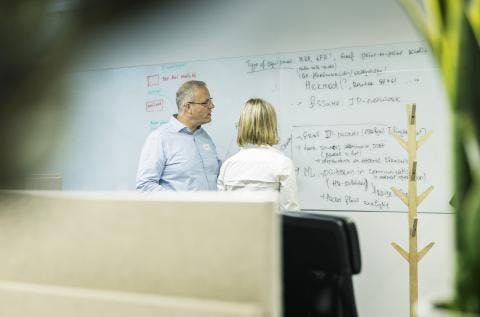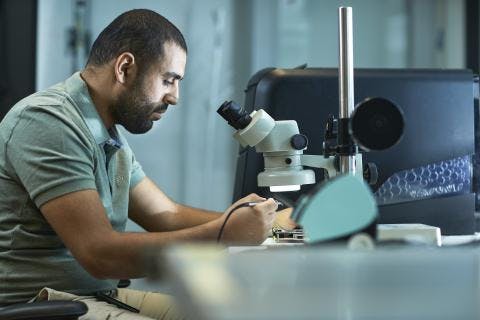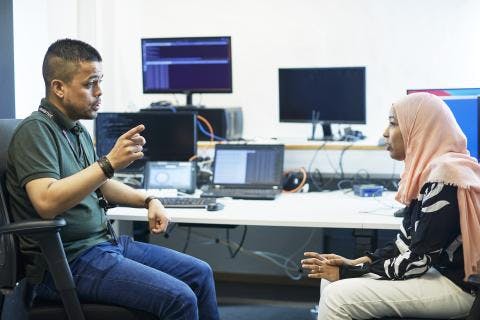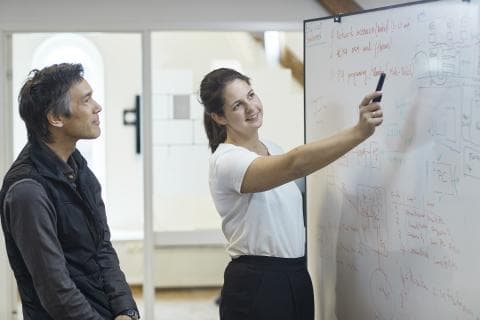Research
Simula Metropolitan Center for Digital Engineering is the home of Simula’s research activities on communication systems, machine learning and data science, and information technology management.
The research conducted at SimulaMet is at the highest international level, and it is combined with the education and supervision of PhD- and master's students through our strategic partnership with Oslo Metropolitan University. We aim to do research that contributes to valuable and lasting innovation in industry and society.
Learn more about our research within these areas

Research & education
SimulaMet is OsloMet's strategic partner in digital engineering, and the research is combined with the teaching and supervision of postgraduate students. The PhD program in Engineering Science at OsloMet is a result of the partners' joint efforts.
Researchers at SimulaMet supervise PhD students employed in the company as well as PhD students employed elsewhere. They further contribute by providing courses and training at OsloMet. In addition, an increasing number of master's students receive supervision from SimulaMet personnel.
Both students and researchers affiliated with SimulaMet are supported by the Simula Academy which provides additional courses and training opportunities to develop the skills needed to become experts and leaders in their field.

Research & Innovation
The contribution to lasting innovation in society is an important part of SimulaMet’s mission, and is expressed in many forms. This includes collaboration with society and industry, the development of commercial applications, and the establishment of start-up companies.
Being part of the Simula Group, the innovation activities at SimulaMet are supported by specialised units such as Simula Innovation, covering support and investments in tech start-ups, deep-tech consulting, and contract research.
Publications
Researchers at SimulaMet publish their work in a variety of venues, including books, journals, and conference publications. In addition to teaching, the scientific staff organise workshops, conferences, industry seminars and summer schools, publish open data sets and source code, and are advisors and members of governmental boards and academies.



